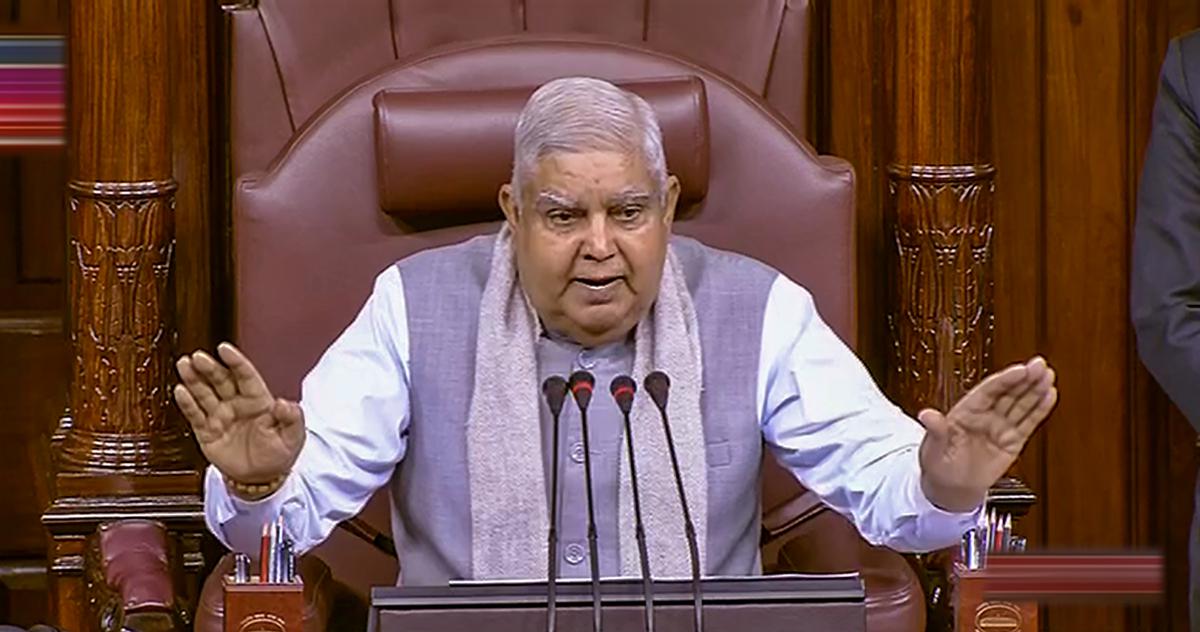Rule 267 of the Rajya Sabha rulebook, which allows for the suspension of the day’s business in order to debate an issue proposed by a Member, has become a source of contention in the Upper House.

What is Rule 267 of Rajya Sabha?
- The Rule empowers a Rajya Sabha member to suspend the House’s pre-determined agenda with the Chairman’s approval.
- “Any member may, with the consent of the Chairman, move that any rule be suspended in its application to a motion related to the business listed before the Council on that day,” according to the Rajya Sabha Rule Book.
- If the motion is carried, the rule in question shall be suspended for the time being: provided further that this rule shall not apply where specific provision already exists for suspension of a rule under a particular chapter of the Rules”.

Why this rule has become important?
- Opposition members in the Upper House have consistently demanded a debate on the India-China border situation.
- In the last eight years, Members have issued hundreds of notices to invoke Rule 267.
- Following the latest clash between the two sides in Arunachal Pradesh’s Tawang, members of the Opposition have become more vocal in their demand.
- Every day, opposition leaders demand that the Chair suspend all other business and allow a discussion on the latest situation along the India-China border under Rule 267.
Is Rule 267 the only way to raise important issues in the House?
- A member of Parliament can raise issues and request a response from the government in a variety of ways.
- During Question Hour, an MP may ask a minister any question about any issue, and the minister must respond either orally or in writing.
- During Zero Hour, an MP may raise the issue. Every day, 15 MPs may raise issues of their choosing during the Zero Hour.
- Special Mention: It can even be brought up during Special Mention. A Chairman may allow up to seven Special Mentions per day.
- Debate on the President’s Address: An MP can attempt to bring the issue to the attention of the government during other discussions, such as the debate on the President’s Address.
- Budget speech: Opposition leaders have also used the Budget debate to launch political attacks on the government.
Why the Opposition is insisting on Rule 267?
- Because all other business would be put on hold to discuss the issue of national importance, any discussion under Rule 267 takes on great significance in Parliament.
- No other type of discussion necessitates the suspension of other business.
- When an issue is admitted under Rule 267, it means it is the most pressing national issue of the day.
- Furthermore, the government will be required to respond to the matter during the discussions under Rule 267.
Current controversy over Rule 267
- For a long time, opposition members have claimed that the Rajya Sabha chairman has consistently refused to allow any discussion under Rule 267.
- While Dhankhar has not permitted any admission under Rule 267, his predecessor, M Venkaiah Naidu, did not permit any admission under Rule 267 during his entire five-year tenure.
When was the Rule used?
- The rule has been applied numerous times.
- In the past, the Chair agreed to suspend business to discuss urgent national issues.
- It was last used in November 2016, when the Upper House invoked Rule 267 to debate demonetization.
